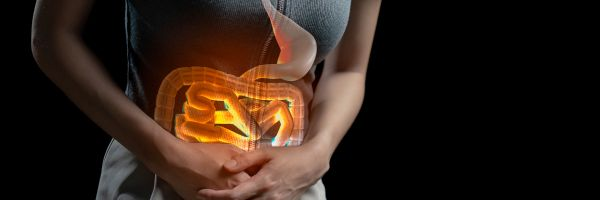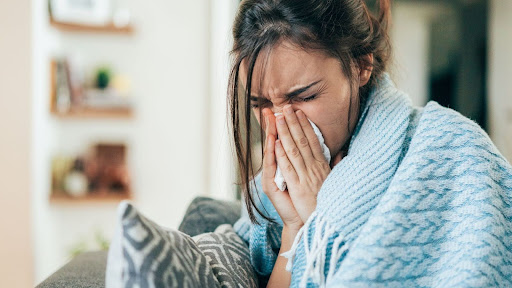Constipation: Causes, Symptoms, and Treatment
4 min read
By DocGenie , Published on - 20 March 2022Written by Dr. Rachna Kucheria (MBBS MAMC New Delhi, MD AIIMS New Delhi, MD (Family Medicine) USC California), one of the best general physicians in Delhi NCR.
In our fast-paced lives, digestive issues like constipation have become increasingly common. While occasional constipation is usually not a cause for concern, chronic constipation can significantly impact one's quality of life. In this comprehensive guide, we'll delve into the causes, symptoms, and effective treatments for constipation, providing valuable insights for better management and relief.

What is Constipation?
Constipation refers to infrequent bowel movements or difficulty passing stools. It occurs when the colon absorbs too much water from the waste, making it dry and difficult to pass. This can result in uncomfortable symptoms such as straining, bloating, and a feeling of incomplete evacuation.
Common Causes of Constipation:
- Inadequate Fiber Intake: A diet low in fiber can contribute to constipation as fiber adds bulk to stool, facilitating its movement through the digestive tract.
- Dehydration: Insufficient fluid intake can lead to hardened stools, making them difficult to pass.
- Sedentary Lifestyle: Lack of physical activity can slow down the digestive system, leading to constipation.
- Medications: Certain medications/supplements like Iron, antidepressants, and antacids can cause constipation as a side effect.
- Medical Conditions: Conditions such as irritable bowel syndrome (IBS), hypothyroidism, and diabetes can disrupt normal bowel function, resulting in constipation.
- Very old age - not all older people have constipation, but many do & it poses more problems in this age group.
Symptoms of Constipation:
- Infrequent Bowel Movements: Having fewer than three bowel movements per week may indicate constipation.
- Difficulty Passing Stool: Straining during bowel movements or experiencing pain while passing stool are common symptoms.
- Abdominal Discomfort: Bloating, cramping, and abdominal pain can accompany constipation.
- Feeling of Incomplete Evacuation: Sensation of not fully emptying the bowels after a bowel movement is a typical symptom.
- Rectal Bleeding: Straining to pass hard stools can cause small tears in the anus, leading to rectal bleeding.
Effective Treatment Options for Constipation:
- Dietary Changes: Increasing fiber intake by consuming fruits, vegetables, whole grains, and legumes can help soften stools and promote regular bowel movements.
- Hydration: Drinking an adequate amount of water throughout the day can prevent dehydration and soften stools, easing their passage.
- Regular Exercise: Engaging in regular physical activity stimulates bowel movements and promotes overall digestive health.
- Lifestyle Modifications: Establishing a regular toilet routine and taking time to respond to the body's natural urge to have a bowel movement can prevent constipation.
- Over-the-Counter (OTC) Remedies: Laxatives, stool softeners, and fiber supplements can provide relief from constipation when dietary and lifestyle changes are insufficient.
- Prescription Medications: In cases of chronic constipation or underlying medical conditions, a healthcare provider may prescribe medications to improve bowel function.
- Biofeedback Therapy: This therapy can help individuals learn to control and improve the coordination of pelvic floor muscles for more effective bowel movements.
Preventive Measures for Constipation:
- Maintain a Balanced Diet: Consuming a diet rich in fiber, fruits, vegetables, and adequate fluids can prevent constipation.
- Stay Active: Incorporating regular physical activity into your routine can promote healthy digestion and prevent constipation.
- Manage Stress: Stress can affect bowel function, so practicing relaxation techniques such as meditation or yoga may help prevent constipation.
- Limit Use of Laxatives: Overuse of laxatives can lead to dependency and worsen constipation over time. They should only be used as a short-term solution.
- Seek Medical Advice: If constipation persists despite lifestyle modifications and over-the-counter remedies, consulting a healthcare professional is advisable to rule out underlying medical conditions.
Conclusion:
is a common digestive issue that can significantly impact one's well-being if left untreated. By understanding its causes, recognizing symptoms, and implementing effective treatment strategies, individuals can manage constipation and improve their quality of life. Making simple lifestyle changes, such as dietary modifications, staying hydrated, and regular exercise, can go a long way in preventing and alleviating constipation discomfort. If symptoms persist or worsen, seeking medical advice is essential for proper evaluation and personalized treatment recommendations. Remember, a healthy digestive system is key to overall wellness.
If you have any concerns or queries about constipation.consult a highly experienced general physician on DocGenie. All our GPs are available for online video sessions. With DocGenie you can get quality medical help from the comfort of your home, in a cost effective way.
About the Author
Dr. Rachna Kucheria is one of the best general physicians in Delhi NCR. She is a US-trained Physician (Family Practice) on the lines of the old-fashioned ‘Family Doctor’ we grew up with and hope to find again. Her emphasis on early, accurate diagnosis; appropriate (few) medicines; and clear patient communication, sets her apart as one of the most trusted physicians in Delhi. She is licensed to practice medicine both in India & California.



